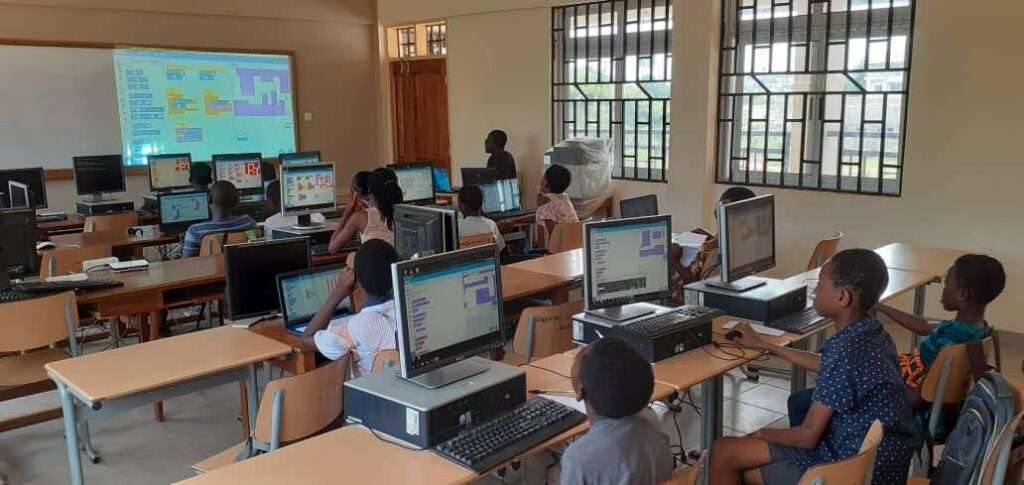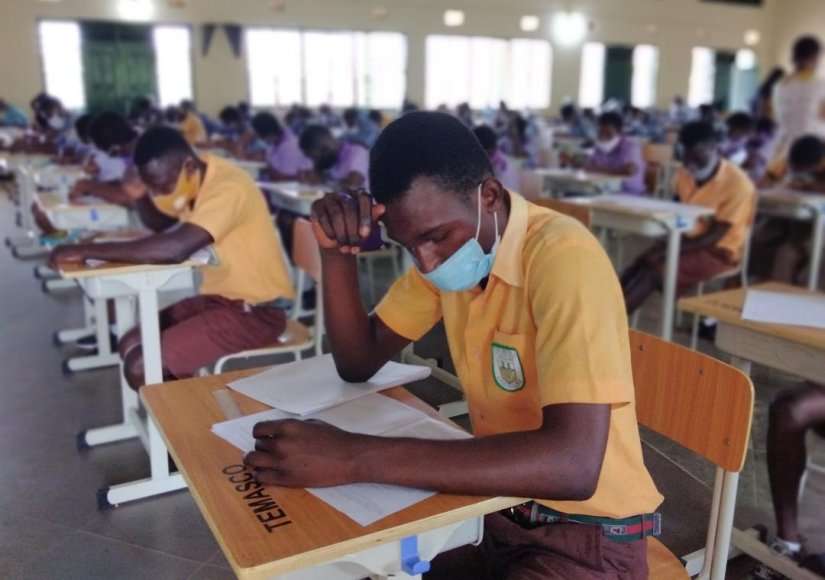As Ghana prepares for the 2025 Basic Education Certificate Examination (BECE), concerns over digital inequality in basic schools have taken center stage.
Africa Education Watch (Eduwatch), a leading education policy think tank, has sounded the alarm on what it describes as a deeply unfair system—where children with vastly different access to digital tools are expected to take the same national exam.
In an official statement, Eduwatch extended best wishes to all candidates scheduled to write this year’s BECE and encouraged them to remain focused, confident, and to “desist from examination malpractice.”
However, beyond the encouragement was a stark warning about structural disparities in the education system.
“Computing is one of the important papers to be written in this year’s BECE. However, two unequal groups will take the same exam: candidates from well-equipped schools with hands-on experience using computers, and those from deprived schools who learned computing through blackboard instruction.”
Africa Education Watch (Eduwatch)

According to Eduwatch, this glaring gap in access to digital resources raises serious concerns about fairness, quality, and the long-term effects of policy neglect.
Their research showed that only two percent of schools in deprived districts have functional computers—despite these areas serving over two million children.
The think tank’s analysis identified the hardest-hit regions as Ghana’s five northern regions, as well as Oti and Western North.
In these areas, many students have no meaningful access to digital learning tools or hands-on computer instruction, yet they will sit the same computing exam as their more privileged peers.
Eduwatch Calls For Urgent Action
Digital inequality, according to Eduwatch, is not just a developmental issue—it is an issue of justice.
The organization noted that even some well-endowed districts are grappling with limited access to Information and Communication Technology (ICT) resources.
Schools in these areas often struggle to offer even the most basic computer literacy due to inadequate infrastructure and teacher training.

Supporting their call for reform, Eduwatch cited data from the Ghana Statistical Service revealing that 72 percent of children aged 6–14 in the Savannah Region have never used an ICT device.
The numbers are similarly high in other parts of northern Ghana: 67 percent in the North-East Region, 65 percent in the Northern Region, and 56 percent in both the Upper East and Bono East regions.
The think tank warned that if these gaps remain unaddressed, they will only widen educational disparities between the country’s urban and rural learners.
Eduwatch emphasized that education, particularly at the foundational level, should be a tool to bridge inequality—not deepen it.
“Eduwatch believes that transformative education must bridge inequality, not deepen it,” the group said, reinforcing the idea that no child should be penalized simply for where they were born or the resources available in their school.
Gov’t Urged To Eradicate Digital Inequality
Eduwatch urged the government to implement a focused and swift intervention aimed at promoting digital inclusion in education.
The organization’s proposed strategy calls for the installation of ICT infrastructure, the provision of consistent electricity, and the fair distribution of digital learning resources to all basic schools, particularly those in underserved communities.
“We urge the Government to roll out a deliberate plan to provide ICT infrastructure and electricity in all deprived schools, and ensure equitable access to digital learning tools and quality instruction across all basic schools.”
Africa Education Watch (Eduwatch)

Eduwatch’s recommendation also ties into Ghana’s broader ambition for a national digital transformation.
According to the organization, achieving digital equity at the basic education level is not optional—it is a prerequisite for inclusive development and national progress.
As the 2025 BECE approaches, Eduwatch’s statement serves as a stark reminder that policies must go beyond urban centers and elite institutions.
To truly transform Ghana’s education sector, all children—regardless of geography or economic background—must have equal opportunities to learn, compete, and thrive in a technology-driven world.
With thousands of students preparing to sit for computing exams in July, the need to address digital inequality is not just urgent—it is moral.
The quality of the nation’s education, and by extension its future workforce, depends on it.
READ ALSO: BET Awards 2025: Black Sherif Loses Out on Best International Act Award
















